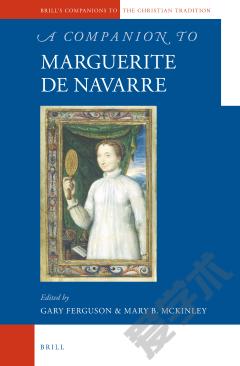Henri De Navarre of Queen Margot
Dumas, who invented so much, claims to have invented the roman-feuilleton. This he did as early in his career as 1836. The occasion was the founding of the journal la Presse, his contribution to it being the historical romance La Comtesse de Salisbury. The other papers quickly adopted this plan of publishing novels in instalments, and by 1843, when Sue's Mysteries of Paris was appearing in the Journal des Debats, the popularity of the system had become immense.Then commenced a great struggle among the rival editors, a struggle which resulted in all the leading novelists being pressed into the service of the feuilleton. Dumas wrote The Musketeers, Monte-Cristo, and several other romances simultaneously.On December 3rd, 1844, la Presse, which was owned by Émile de Girardin, published the first chapter of Balzac's novel, The Peasants. To it was prefixed a dedication, which contained this sentence: During eight years I have a hundred times quitted, a hundred times resumed this book, the most important of those I have resolved to write.Three days later the following announcement was inserted: La Presse commenced on Tuesday, December 3rd, the publication of The Peasants, scenes of country life by M. de Balzac. In the course of the month, and immediately after the first part of The Peasants, la Presse will publish la Reigne Margot, by M. Alexandre Dumas.The Peasants, in fact, far from being read with interest, had brought to the editor's letter-box expressions of disapproval, nay, even threats to drop subscriptions. And Girardin, afraid to face the dreaded December 31st, on which day, it must be observed, subscriptions for the ensuing year fell due, had had to promise a romance by the author of Monte-Cristo, and not only this, but to publish before the close of the year the first chapter, breaking his contract with Balzac by so doing.The first instalment of la Reine Margot duly appeared on Christmas Day, and the bored readers of The Peasants, which had stopped a few days before, seized the paper with joy and renewed their subscriptions.Emile de Girardin was saved, but Balzac was humiliated, and a crowd of little men immediately attacked him, ridiculing The Peasants and the fifty characters already introduced. Dumas, who possessed a most generous heart, must have been greatly disturbed by all this, but he had sold the serial rights and was powerless to interfere. Balzac was no admirer of Dumas' work, and at times spoke of it contemptuously, the fact being that, in Balzac's eyes, its enormous popularity was its defect. One day, the two authors having met at an evening party given by Madame de Girardin, Balzac, when leaving, said as he passed Dumas, When I can do nothing else, I shall write some plays. Begin at once then, promptly said the popular dramatist, and no reply occurring to Balzac, he straightway departed. After Balzac's death Dumas never wrote of him but in the highest terms, though he rather naively confessed that he was unable to appreciate all the Comedie Humaine, as Balzac called his complete works.Was Balzac too angry with Girardin to read la Presse? No; we feel that great was his curiosity to see what the Negro, as he called Dumas, would make of the sixteenth century, of Catherine de Medicis and Charles IX., of Queen Margot and Henri of Navarre. Dumas had been happy in inventing his Count of Monte-Cristo, extraordinarily fortunate in coming across Athos, Porthos, Aramis, and D' Artagnan in a forgotten book of memoirs - such luck could not last, the tale of the Massacre of St. Bartholomew was a thrice-told one, his heroine, Margot, was the best-known of any queen, for had not stories innumerable been written of and round about her? What would Dumas be able to do? Balzac must have asked himself as he read the announcements.It was soon seen that Dumas had been fortunate once again.
{{comment.content}}








 京公网安备 11010802027623号
京公网安备 11010802027623号